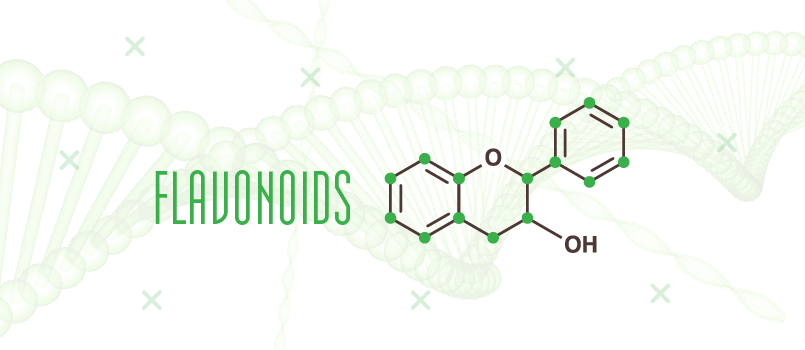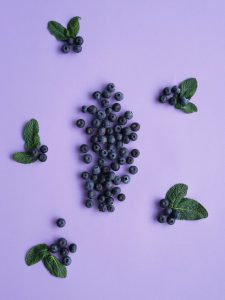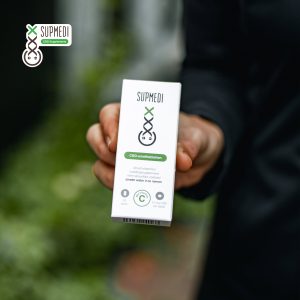
Other CBD Ingredients: What Are Flavonoids?
4 November 2020Broad-spectrum CBD like that produced by SupMedi contains much more than just CBD. There are many other cannabinoids than CBD alone, and organics such as terpenes and flavonoids are important, too. Flavonoids are responsible for the colour we see in plants, fruits, and vegetables. They do more than that, however: flavonoids are interesting for humans, too. They can have a positive effect on our health. This explains why science has been looking at flavonoids with increasing attention in recent years.
What Are Flavonoids?
 In our previous blogs, we have been focussing on the other cannabinoids in supplements, such as CBN, CBC and CBG. We’ve also looked at terpenes and what they can do. Now, it’s time to address flavonoids. These are the compounds that give fruits, vegetables and plants their bright colours. Oranges, bananas, and blueberries all have flavonoids to thank for their trademark colours. Incidentally, the green you see in (hemp) plants is not caused by flavonoids, but by chlorophyl. Every other colour can be linked to a distinct flavonoid. In fact, the word itself is derived from Latin ‘flavus’, meaning yellow.
In our previous blogs, we have been focussing on the other cannabinoids in supplements, such as CBN, CBC and CBG. We’ve also looked at terpenes and what they can do. Now, it’s time to address flavonoids. These are the compounds that give fruits, vegetables and plants their bright colours. Oranges, bananas, and blueberries all have flavonoids to thank for their trademark colours. Incidentally, the green you see in (hemp) plants is not caused by flavonoids, but by chlorophyl. Every other colour can be linked to a distinct flavonoid. In fact, the word itself is derived from Latin ‘flavus’, meaning yellow.
These plant compounds do much more than colour bananas, though. Their other important functions include protecting plants against harmful external influences, signalling cellular activity, and contribute to plant metabolism. Like terpenes, they produce aromas. This usually happens in interactions with terpenes, which are responsible for most of the scent and flavour of cannabis plants. The term flavonoid comprises four main categories: flavonoids, neoflavonoids, isoflavonoids, and anthocyanins. One class of flavonoids is found exclusively in cannabis: cannaflavins. All in all, we know thousands of different flavonoids, over 20 of which are cannaflavins that are unique to cannabis plants. The three most important ones are cannaflavin A, B, and C.
Flavonoids And Their Functions
 Flavonoids have important functions in plant biology. Their colours make the world a brighter place, but more importantly, they actually help plants survive. Just think of the role colour plays in attracting pollinating insects necessary for reproduction. Apart from this, science is deeply interested in the part these substances could play in our own health. That part may be bigger than we once thought.
Flavonoids have important functions in plant biology. Their colours make the world a brighter place, but more importantly, they actually help plants survive. Just think of the role colour plays in attracting pollinating insects necessary for reproduction. Apart from this, science is deeply interested in the part these substances could play in our own health. That part may be bigger than we once thought.
In 2016, the Journal of Nutritional Science published an article on flavonoids. They are crucial for producing all sorts of medicinal products, cosmetics, and other pharmaceuticals. Isolated flavonoids can be used in many ways. They have anti-inflammatory and anticarcinogenic properties. They also work as antioxidants, and they are known to prevent mutations at the cellular level.
Flavonoids In CBD
Cannabis contains around 23 different flavonoids, according to the most recent count. Some of these are apigenin, luteolin, quercetin, kaempferol, and orientin. These, however, are not specific to cannabis: they also occur in other plants. Kaempferol, for instance, is found in apples and grapes; quercetin is present in cereals and red onions. It is responsible for the pink and purple hues seen in some cannabis strains.
The Entourage Effect
If you use broad-spectrum CBD products such as SupMedi CBD Oil or CBD Tablets, you don’t just profit from the properties of CBD itself. You’ll also enjoy the benefits of all other compounds naturally present in hemp plants. By broad-spectrum, we mean that the entire range (spectrum) of natural organic compounds is present in the CBD supplements. The sole exception is THC: we take that out to make sure our products can’t get you high. All the other compound mutually interact, influencing each other’s effects. This phenomenon is known as the entourage effect. Together, these substances produce more and different effects than each one taken in isolation. This is a real-life example of how the whole can be more than the sum of its parts. Although the exact interactions of flavonoids in CBD supplements is not entirely clear yet, they are likely to influence the workings of many ingredients.
Anti-Inflammatory, Anticarcinogenic, Anti-Oxidant
As mentioned above, some flavonoids are wholly unique to cannabis plants, including cannaflavin A and B. Studies indicate that cannaflavin A inhibits production of prostaglandin E-2. This is an inflammatory molecule. Cannaflavin A is capable of countering inflammation, with greater effect than regular analgesics like aspirin. In contrast to aspirin, however, cannaflavin works exponentially. The more cannaflavin you take, the stronger its effect.
Flavonoids also have powerful antioxidant properties. If you use supplements such as CBD Tablets, Oil, or Gummies, these can protect you from free radicals. These are atoms with unpaired electrons that can cause serious damage inside the body. Free radicals are associated with cancer, Parkinson’s. Alzheimer’s, and other debilitating and potentially lethal conditions. Surely, further study of the potential to protect us from these free radicals is reason enough to keep investigating.
Future Research
Current research into flavonoids and their influence is still in its infancy; particularly where cannabis is concerned. Flavonoids in general are known to support health, but their exact effect in CBD supplements is still not entirely clear. Still, the studies continue, as more and more scientists realize that how important flavonoids could be an important link in the search for natural health support. Hopefully, more will become clear in the coming years. We will keep you up to date on any new developments. In the meantime, it’s good to know that our broad-spectrum CBD supplements are crammed with flavonoids, terpenes, cannabinoids, and more!








